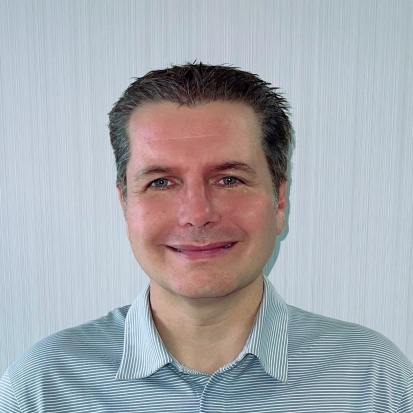About the lecturer
| Jonathan Woodward is a professor in the Graduate School of Arts and Sciences at the University of Tokyo. He received his doctorate in physical chemistry from the University of Oxford and runs a chemistry and biophysics research group concerned with the effects of electron spin on photochemical and photobiological processes. In particular, his group develops and exploits new experimental methodologies to study these effects. These techniques include laser microscopy and spectroscopy, magnetic resonance methods and spin state control through static, oscillating and pulsed magnetic fields. He teaches for the PEAK and GPES programs based at Komaba and has a strong interest in science pedagogy. He is a Fellow of the Royal Society of Chemistry and recipient of their Higher Education Teaching award. | 
Prof. Jonathan WOODWARD
|
Syllabus
| 1 | Subject | An Introduction to Quantum Biology |
| 2 | Field | Physics, Chemistry, Biology |
| 3 | Key words | Quantum mechanics, biology, magnetoreception |
| 4 | Global Unit | 1 |
| 5 | Lecturer | Jonathan WOODWARD |
| 6 | Period | July 16 - 22, 2024 |
| 7 | Time | 08:30-10:00, 10:30-12:00 (Japan Standard Time) |
| 8 | Lecture style | In-person (on Hongo Campus) |
| 9 | Evaluation Criteria | Excellent (S) 90–100%; Very good (A) 80–89%; Good (B) 70–79%; Pass (C) 60–69%; Fail (D) 0–59% |
| 10 | Evaluation methods | Attendance and participation 40% Class discussion and activities 30% Final group presentations 30% |
| 11 | Prerequisites | Quantum Biology is a highly interdisciplinary subject and I encourage students from across physics, chemistry and biology join this course. To this end I will make the course as self-contained as possible and will not require students to have already studied any quantum mechanics. While I will try to use visual models over mathematical equations wherever possible, students need to have a strong basic science background covering fundamentals of physics, chemistry and biology and should be comfortable with typical mathematics covered in first year ‘mathematics for scientists’ courses. In particular the course will make use of basic calculus, vectors, matrices and complex numbers so students unfamiliar with these principles will struggle if they take this course. |
| 12 | Contents | Purpose Students completing this course will acquire an understanding of the areas where quantum mechanics may play an important role in biological function. Students will study the basic principles of quantum mechanics, the differences between quantum and classical behaviour and the possibilities and problems associated with observing these differences in biology. In particular, they will learn about quantum mechanical spin, its unique characteristics and how it can play a role in making chemical reactions sensitive to weak applied magnetic fields, including the earth’s field and the possible implications for animal behaviour and human health. Description This course will be delivered in-person and will consist primarily of lectures, interactive discussions and group-based activities. In addition, on the final day of the course there will be a laboratory tour and student presentation session. Students will prepare group presentations during the week and deliver them in the final session. The course will begin with a historical overview of the development of quantum theory and examine the reasons that biology theory and practice progressed largely independently of this major breakthrough in our understanding of the way things work at the microscopic scale. We will then take a look at cutting edge research in a range of different areas where quantum mechanical effects are starting to be used to explain and understand the mechanisms of various biological functions. To then progress, we will spend some time looking at the basic ideas and principles of quantum mechanics and their implications. We will look in some detail at spin, which is a property of matter that has no counterpart in classical physics and introduce the radical pair mechanism via which the spin of electrons and nuclei can have a direct influence on chemical reactions. Schedule
Assignments
|
| 13 | Required readings | There is no required reading before attending the course, but your understanding and experience will be enriched if you brush up your basic knowledge of physics, chemistry and biology through looking at first year University general textbooks in these disciplines. Ensuring your familiarity with the mathematical topics of basic calculus, vectors, matrices and complex numbers by reviewing textbooks on mathematics for scientists along with online resources such as Khan Academy will ensure you get the most from the course. |
| 14 | Reference readings | A nice introduction to quantum biology is “Life on the Edge: The Coming of Age of Quantum Biology” by Jim Al-Khalili and Johnjoe McFadden. All lecture notes and reading materials required will be provided through the UtelF during the course. |
| 15 | Notes on Taking the Course | - |
UTokyo Global Unit Courses (GUC)
International Education Promotion Group, Education and Student Support Department
The University of Tokyo, 7-3-1, Hongo, Bunkyo-ku, Tokyo 113-8652 JAPAN
For inquiries regarding GUC, kindly direct them to the following email address:
utokyo-guc.adm(at)gs.mail.u-tokyo.ac.jp *Please change (at) to @
International Education Promotion Group, Education and Student Support Department
The University of Tokyo, 7-3-1, Hongo, Bunkyo-ku, Tokyo 113-8652 JAPAN
For inquiries regarding GUC, kindly direct them to the following email address:
utokyo-guc.adm(at)gs.mail.u-tokyo.ac.jp *Please change (at) to @






